The Tortured Poets Department and the Balance of Payments
My weekend with Taylor Swift
“Do you actually like Taylor Swift or is this some sort of in-joke?” They tell you to bring your whole self to work. They don’t mean it. The question arose I think because:
Someone who flirts with a curmudgeonly persona and also enjoys discussions about the balance of payments can’t like pop music
I had just been offered free tickets to the Eras Tour in Paris and such a gift would be a terrible thing to waste on an imposter
I almost didn’t go. It fell on the weekend of my birthday and while I didn’t have anything Gatsbyesque planned, attending a concert by myself or — even worse — with a handful of other journalists — sounded like a potentially traumatic way to turn 35. I mean, what if I needed the bathroom? Was I expected to ‘pardonnez-moi’ my way past throngs of screaming French teenagers every 90 minutes? I needn’t have worried.
After stepping off the Eurostar at Gare du Nord1 and squeezing into one of those somewhat reluctant lifts you find in mid-range Parisian hotels, I went in search of dinner. Despite being in possession of a French A-level and my Dad’s advice (“Speak as if you have a cold”) I was promptly handed the English menu.
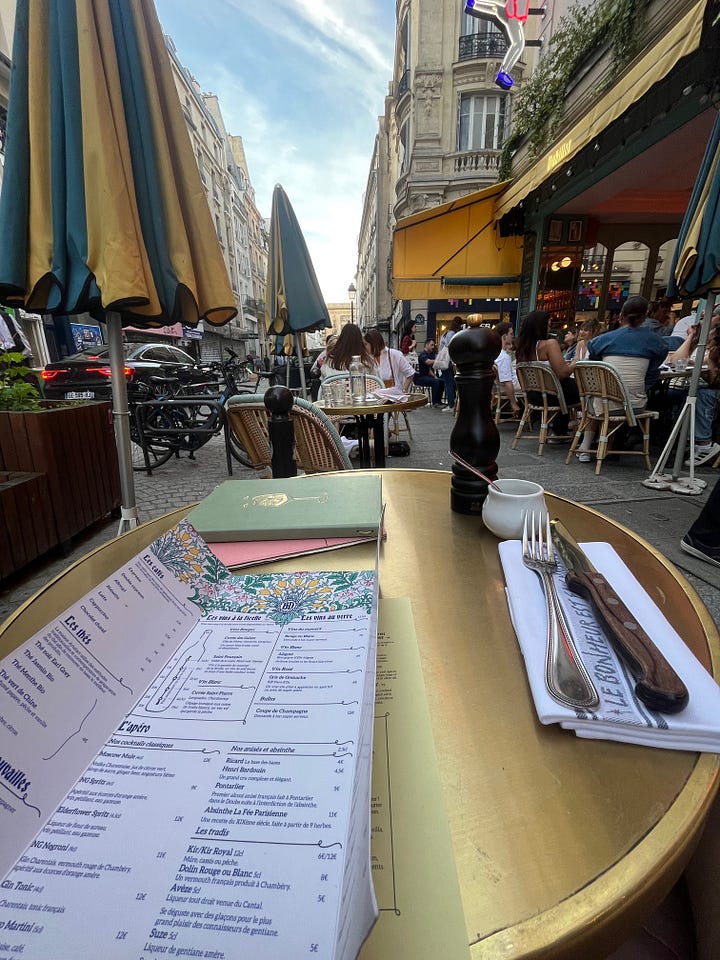
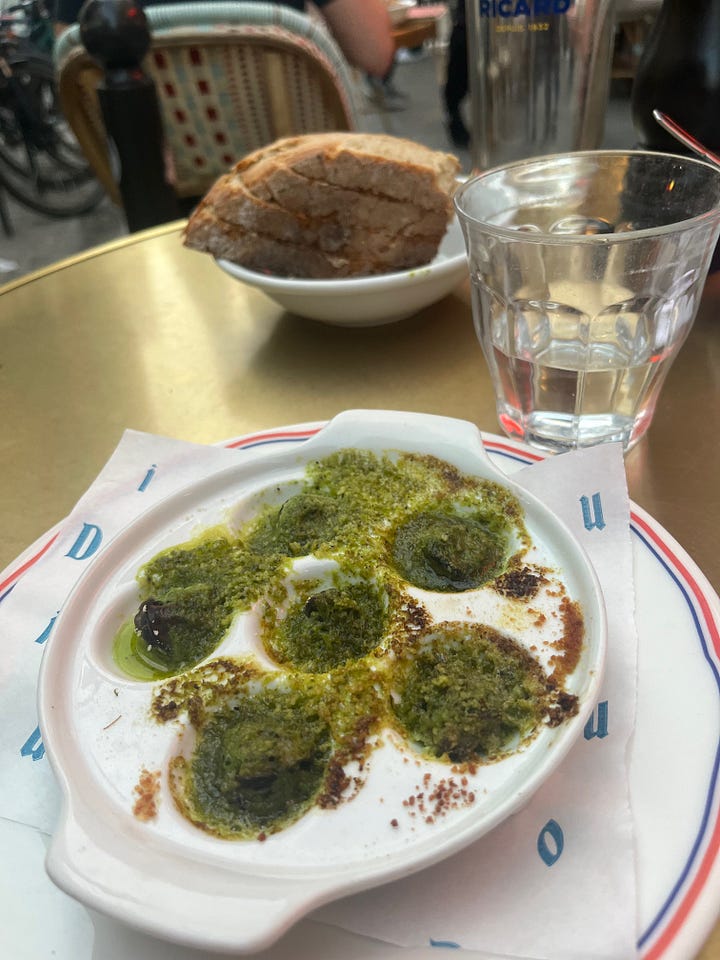
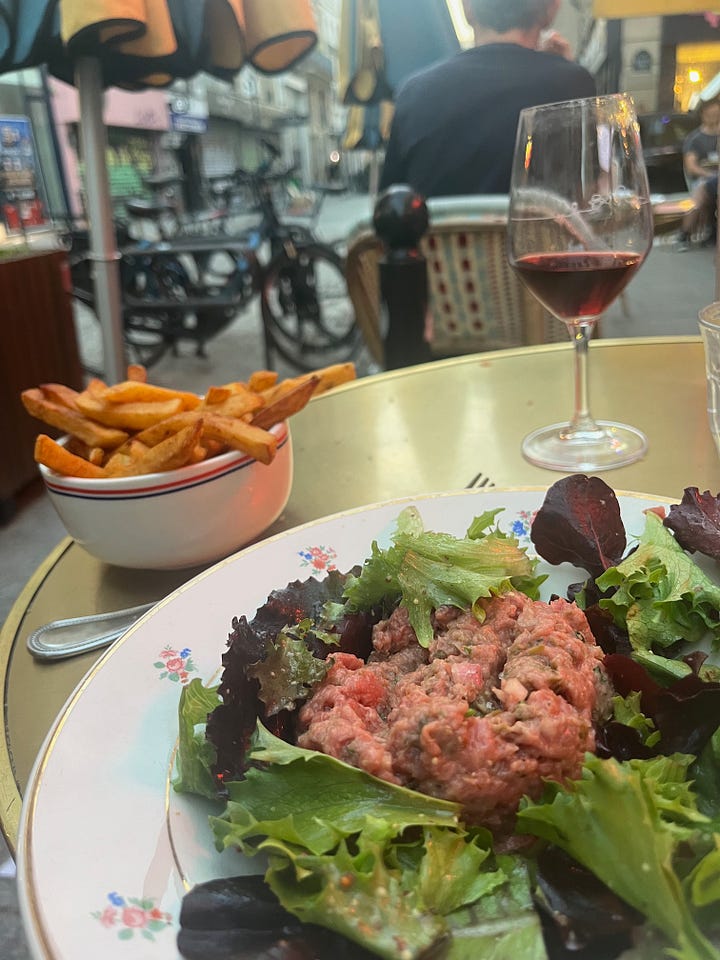
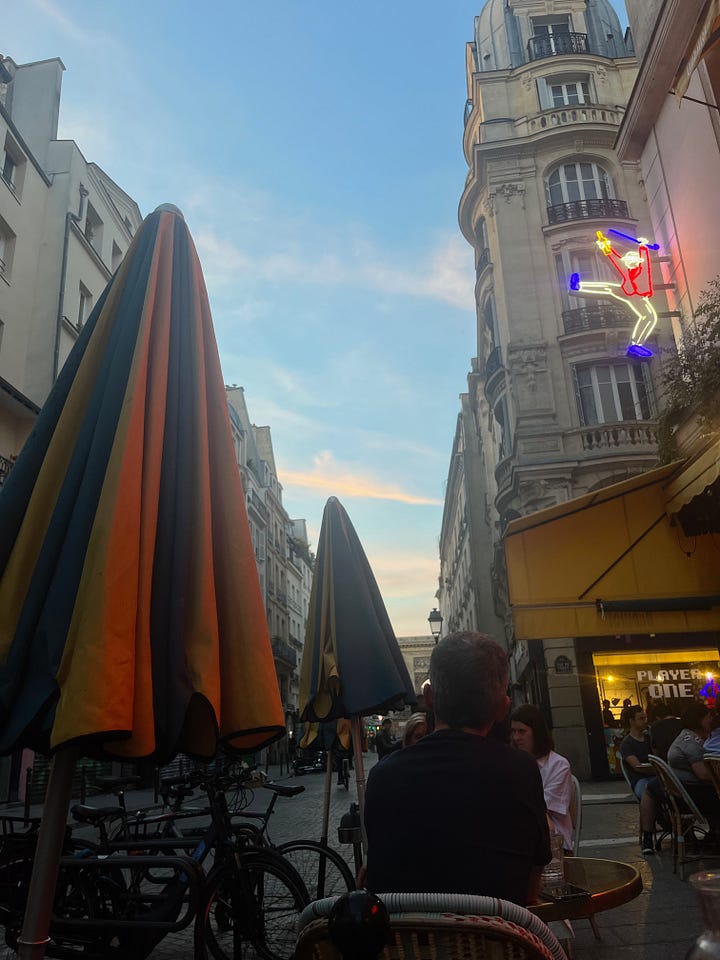
The following day, I walked along the Seine and towards the Bois de Boulogne, toggling between Swift’s newest release, The Tortured Poets Department, and Tim Shipman’s Brexit deep dive, No Way Out. One, an album about private heartbreak, the other a book about a national nervous breakdown.
I’m not here to yuck anyone’s yum. If you are a proper Swiftie — that is, you care deeply about her private life, or the meaning of various Easter eggs — more power to your arm. For me, I was wonderstruck by her use of language, specifically zeugma2.
Derived from the Greek word meaning "yoking” or “joining”, it is a literary device in which a word applies to two others in different senses. For example: she lost her phone and her temper. My favourite way of thinking about it is that it is the literary equivalent of a "double-take."
What I appreciate most of all about zeugma is its sheer economy. By connecting two unrelated terms — often the physical with the abstract — it forces the brain to reprocess the verb in two separate contexts at once, a tension that, when resolved, is both intellectually and emotionally rewarding. Take the following:
“You crashed my party and your rental car” — The Smallest Man Who Ever Lived
“The moon is high like your friends were the night that we first met” — Paper Rings
“How you took the money and your dignity and got the hell out” — The Lucky One
Then there is zeugma’s close cousin, antanaclasis, in which a word is used to refer to two different things, but in this case is repeated. Examples in Swift’s work include:
“I don't wanna keep secrets just to keep you” — Cruel Summer
“But you held your pride like you should’ve held me” — The Story of Us
“Say you fancy me, not fancy stuff” — King of my Heart
Swift is, of course, not the first writer to employ such rhetorical tricks. In William Shakespeare’s Cymbeline (circa 1610), he wrote:
“Golden lads and girls all must / As chimney-sweepers, come to dust.”
In The Pickwick Papers (1837), Charles Dickens said of Miss Bolo that she:
“went straight home, in a flood of tears and a sedan-chair.”
But perhaps best of all, Disney’s favourite camp uncle, Scar, sang in the The Lion King (1994):
"Yes, my teeth and ambitions are bared. Be prepared."
As for the concert itself — well, let’s just say the private box with artisan hors d'oeuvres, bottomless champagne and private bathroom next door helped allay any fears I may have had. I became best friends for the night with five fellow Swifties, got the last taxi back to the hotel before the police closed the roads and somehow woke up without a hangover.
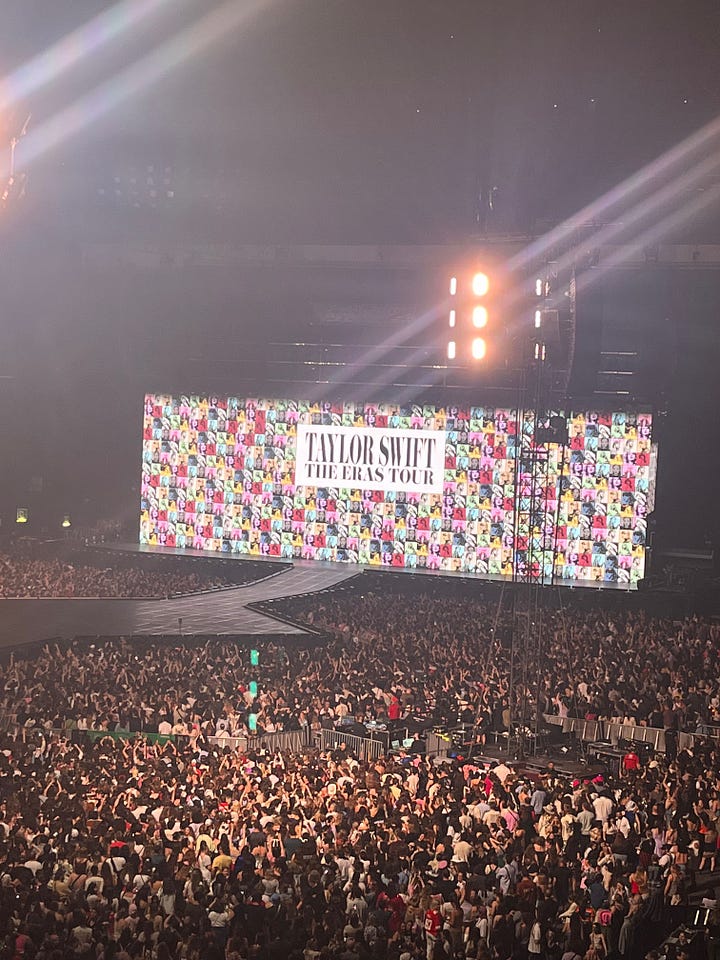

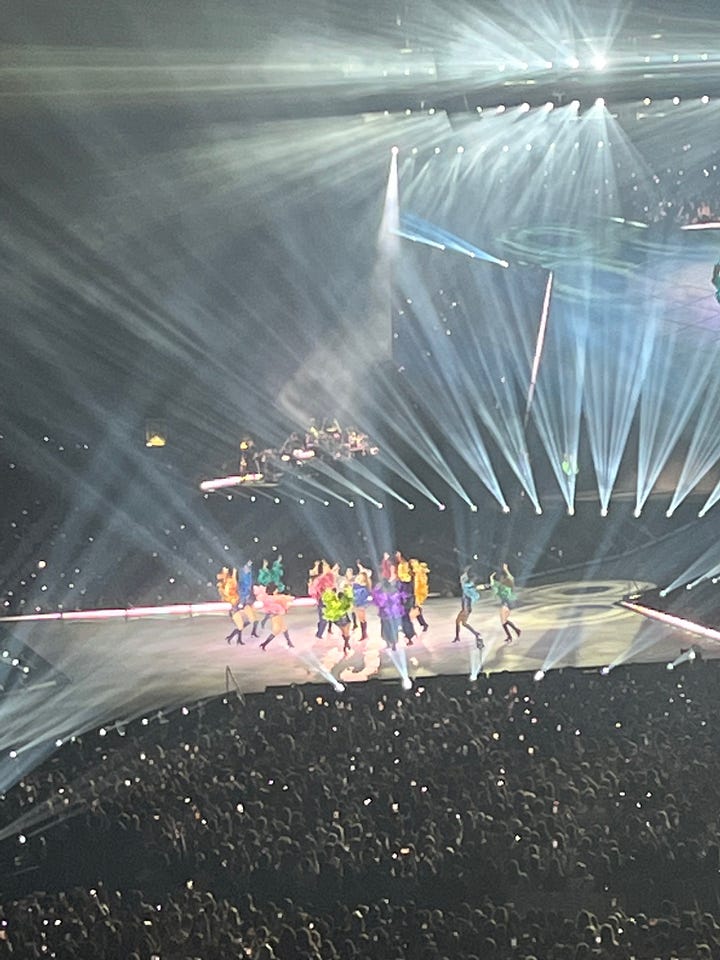

So what’s the lesson here? That you should accept free tickets to do something you’ll love? That at least one reader will turn out to be a visiting professor of Ancient Greek literature and will email to tell me I know nothing about zeugma? That I really didn’t want to write about the very not good inflation figures out this morning? I ask the question and your forgiveness.
It’s quite nice how St Pancras station and the surrounding area is a far more pleasant place than large parts of Paris’ 10th arrondissement.
I’m not going to get into the difference between zeugma and syllepsis. Don’t @ me.




I struggle to understand the difference between zeugma and syllepsis but I do think it's worth mentioning the true master, Michael Flanders. "She lowered her standards by raising her glass, her courage, her eyes and his hopes" (Have Some Madeira M'Dear).
Ha! I was about to ask you to explain the difference between zeugma and syllepsis. You headed me off at the pass and the ball into touch. (PS: you lucky sod!)